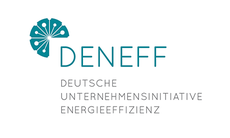Search eceee proceedings
A bottom-up analysis of energy efficiency improvement and CO2 emission reduction potentials in the Swiss basic metals and fabricated metal products industry
Panel: 4. Technology, products and system optimisation
Authors:
Navdeep Bhadbhade, University of Geneva, Switzerland
Jibran Zuberi, University of Geneva, Switzerland
Martin Patel, University of Geneva, Switzerland
Abstract
Manufacturing of basic metals and fabricated metal products (NOGA 24 and 25) in Switzerland is responsible for 20% of total final energy demand of the Swiss industrial sector. In the time period 2008 to 2016, total final energy consumption of the sector increased by 5%. In the year 2015, 11.3 PJ of total final energy was consumed by this sector. This study investigates the current potential of energy efficiency improvement and carbon dioxide abatement for manufacturing of basic metals and fabricated metal products in Switzerland by constructing bottom up electricity, fuel and CO2 cost curves. Based on the values available in literature, the technical energy savings potential for this sector is estimated at 25% of sector’s final energy consumption of the year 2015. The cost-effective energy efficiency potential of this sector is estimated to be 10% and the corresponding reduction in CO2 emissions associated with the cost-effective energy savings is 6%. A sensitivity analysis is carried out to test the sensitivity of cost effectiveness of energy conservation measures to changes in fuel, and electricity prices. The results of this study can help to develop a better understanding of energy efficiency gap in basic metals and fabricated metal products manufacturing sector and to identify cost effective energy efficiency and CO2 emission reduction technologies in basic metal manufacturing and foundries.
Downloads
Download this presentation as pdf: 4-042-18_NavdeepBhadbhade_pres.pdf















